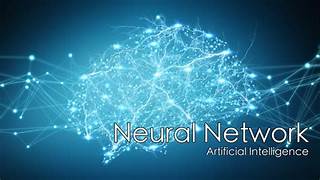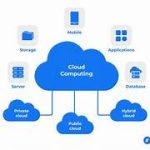Exploring the Benefits of Machine Learning and Neural Networks
Introduction
Machine learning (ML) and neural networks are revolutionizing industries worldwide. From healthcare and finance to autonomous vehicles and entertainment, these technologies are enhancing efficiency, accuracy, and decision-making processes. This article explores the benefits of machine learning and neural networks, highlighting their impact across various sectors.
1. Understanding Machine Learning and Neural Networks
Machine learning is a subset of artificial intelligence (AI) that enables computers to learn patterns from data without explicit programming. Neural networks, inspired by the human brain, are a crucial component of deep learning, a specialized branch of ML.
Key Components:
- Supervised Learning: Uses labeled data for training models to make predictions.
- Unsupervised Learning: Identifies hidden patterns in data without predefined labels.
- Reinforcement Learning: Machines learn through rewards and punishments based on their actions.
- Neural Networks: Mimic human neurons to process complex data and improve learning efficiency.
2. Enhanced Data Processing and Pattern Recognition
One of the most significant advantages of ML and neural networks is their ability to analyze vast amounts of data efficiently.
Key Benefits:
- Identifying Trends: AI systems recognize patterns in large datasets faster than humans.
- Automated Decision-Making: ML models provide insights that drive business strategies.
- Error Reduction: Reduces human errors in data processing and interpretation.
3. Personalization and Customer Experience
Machine learning powers personalized recommendations and tailored customer experiences across various industries.
Examples:
- E-commerce: Platforms like Amazon use ML to suggest products based on user behavior.
- Streaming Services: Netflix and Spotify recommend content using neural networks.
- Online Advertising: ML optimizes ad placements, improving customer engagement.
4. Improving Healthcare and Medical Diagnoses
Neural networks have transformed healthcare by enabling early disease detection and accurate diagnoses.
Applications:
- Medical Imaging: AI analyzes X-rays, MRIs, and CT scans to detect abnormalities.
- Predictive Analytics: Identifies disease risks based on patient history.
- Drug Discovery: Accelerates the development of new medications through data-driven insights.
5. Advancing Autonomous Systems
Self-driving cars and robotics rely on ML and neural networks for navigation and real-time decision-making.
Impact:
- Autonomous Vehicles: Tesla and Waymo use AI to interpret traffic data and avoid collisions.
- Smart Robots: AI-driven robots assist in manufacturing, healthcare, and logistics.
- Drones: ML enhances drone navigation for surveillance and delivery services.
6. Financial Services and Fraud Detection
The finance industry benefits from ML through risk assessment, fraud detection, and automated trading.
Key Benefits:
- Fraud Prevention: AI identifies suspicious transactions in real time.
- Algorithmic Trading: Machine learning models predict market trends for high-frequency trading.
- Loan and Credit Risk Analysis: AI assesses borrower credibility based on financial history.
7. Energy Efficiency and Sustainability
Machine learning is optimizing energy consumption and promoting sustainability in various sectors.
Examples:
- Smart Grids: AI optimizes power distribution to reduce energy waste.
- Climate Modeling: ML predicts weather patterns and climate changes.
- Renewable Energy Optimization: AI enhances the efficiency of solar panels and wind turbines.
8. Cybersecurity and Threat Detection
Neural networks strengthen cybersecurity by identifying vulnerabilities and preventing cyberattacks.
Security Enhancements:
- Anomaly Detection: AI detects unusual behavior in networks.
- Malware Identification: ML analyzes code to identify potential threats.
- Automated Security Responses: AI-driven systems counteract cyber threats instantly.
Conclusion
Machine learning and neural networks are transforming industries by improving efficiency, accuracy, and automation. Their ability to process data, detect patterns, and enhance decision-making makes them invaluable in healthcare, finance, security, and beyond. As these technologies continue to evolve, their impact on society and businesses will only grow, paving the way for a more intelligent and connected future.


